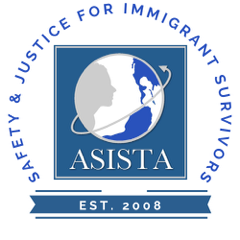105 Organizations Call on Senate to Strengthen Protections for Immigrant Survivors in VAWA 2021
Last month, the Alliance for Immigrant Survivors (AIS) sent a letter signed by 105 organizations to Senate leadership to strengthen protections for immigrant survivors in the Violence Against Women Act (VAWA) 2021. For over 25 years, VAWA has served as a rare example of how a bipartisan Congress can protect survivors and strengthen their ability to overcome abuse. Now, as the Senate considers its next actions on VAWA, we urge them to continue the tradition of safeguarding protections for all survivors, including immigrant survivors who are experiencing domestic violence, sexual assault, human trafficking, and other crimes.
AIS supports the latest bipartisan VAWA reauthorization, H.R. 1620, which takes a holistic approach, addressing the complexities of survivors’ lives, and maintains established protections, while also addressing persistent gaps. Yet, VAWA 2021 doesn’t solve the problems facing tens of thousands of immigrant survivors who have faced additional threats and barriers over the last several years.
In our letter, we called on the Senate to include these critical protections for immigrant survivors:
- Ensure that survivors are not deported before their applications are adjudicated as this clearly undermines the bipartisan purpose that survivors have the ability to seek protection against deportation;
- Raise the U Visa cap so that more survivors have access to these critical protections, an effort that was supported by President Biden given its inclusion in the U.S. Citizenship Act of 2021;
- Add hate crimes and other qualifying crimes to the U visa statute to ensure that those who are victims of racist violence may seek paths to safety and justice;
- Strengthen confidentiality in protections for survivors who apply for VAWA self petitions, U visa and T visa applications by limiting information sharing about their applications;
- Ensure access to work authorization for survivors given the egregious delays in the processing of VAWA self-petitions, U visa and T visa applications. These significant delays, coupled with other barriers, such as a lack of access to financial supports, can subject survivors to additional risks and barriers;
- Provide access to basic economic and housing supports for immigrant survivors in order to escape and overcome abuse and exploitation.
This latest reauthorization of VAWA is already three years behind schedule, as the last reauthorization was in 2013. Failure to strengthen immigration protections created in VAWA and subsequent reauthorizations has resulted in substantial barriers for immigrant survivors and their children. The time to strengthen these immigration protections is now, and VAWA is the right vehicle to do it.
